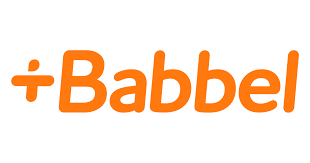Choosing the Right School in South Africa

Finding the Right School in South Africa
Many expats automatically look at enrolling their children in an international school, because that is the thing expats do. But South Africa also has a number of excellent private schools on offer that are well worth looking into. Which school you end up choosing for your child in South Africa will depend on several factors.
Price
For some expats, price is not an issue because school fees are covered by their companies. This might explain why the American International Schools (Johannesburg and Cape Town) are so expensive, because they are among the more popular schools for South Africa-bound expats. Private schools, in contrast, are often only half that price, even though they generally have very impressive facilities and extramural programs.
Convenience
Living somewhat close to school will make your life much easier in any metropolitan area and perhaps particularly so in Johannesburg, where traffic is very heavy during morning rush hour. Finding a school within walking distance to your home is a huge bonus, which is why extending your search beyond the few international schools is advisable.
Bus service is not something typically available to South African schools, whereas some international schools offer it for an additional fee.
Academics
It is widely assumed that South African schools are behind their American and European counterparts, particularly in math and early reading, and particularly compared to England where children enter school very early. However, there is a large variance between government and private schools in South Africa, and most private schools tend to achieve good results in international benchmark tests.
There are, however, definitely some differences in timing, curriculum, and style. South African school days tend to be shorter than those at international schools (letting out at 1:30 or 2:00) and there is often an emphasis on sports and other extramural activities amongst private schools that compete with a purely academic mission.
Bilingualism
The German and French international schools of Johannesburg as well as Cape Town offer bilingual instruction, to native speakers as well as other students. There are also a number of Afrikaans colleges catering to the Afrikaans-speaking part of South Africa’s population, which are probably of less interest to most expats. All other schools are English-speaking but offer a combination of foreign languages (most often Zulu, Xhosa, Afrikaans, and/or French).
Calendar
The biggest difference, on the surface, between international and local schools in South Africa is the difference in school year. The international schools mostly adhere to their country’s schedule, i.e. starting the school year in August and ending it in June, whereas South African schools adhere to the school year predominant in the Southern Hemisphere, which goes from mid-January to the beginning of December. Expats often worry about the “loss” of this half-year upon moving into the South African school system and if you plan to live here only for a short time, it might be easier to stick to your existing calendar by choosing an international school.
However, most expats who do make the switch end up being happy with it and find a way to switch back into their native system without a problem upon their return home. Another consideration is making sure your holidays are matched within one family – one reason why it’s often not feasible to send your children to different schools while living in South Africa.
Extramurals
School is not only about academics. South African schools do an excellent job balancing academic instruction with life skills, discipline (school uniforms!), social responsibility, sports, and the arts. Sports and school spirit are a big part of South African school life, but you might have to be willing to break new ground into sports such as cricket, rugby, and netball. If you’d like to stick with more American sports like baseball and basketball, the American school is probably the best option
Swimming and tennis are offered in almost all the schools. If sports are important to you, make sure you check with various schools before enrolling what precisely it is that is offered and whether it is offered for both girls and boys. Being able to participate in sports through the school is a big bonus, as traffic often makes driving your kids to club sports after school rather cumbersome. Also check with your school regarding music lessons. Music is also a big part of South African school life and many schools bring in outside tutors to teach instruments during the school day, which can be a wonderful opportunity for your children to further expand their horizons.
Special needs
If you have a special needs child, make sure you contact the school directly to find out what, specifically, is offered. South African schools are generally not very flexible catering to special needs or gifted children, and the extent of their special needs program might be to refer you to a paid tutor. The international schools tend to be more accommodating in this regard, depending on what is typically offered in the home country.
Social life
The impact school has on your social life as a family should never be underestimated. Most family friends are met through school, and your mix of friends will be different based on which school you choose for your children. You will meet more expats at an international school, and more South Africans at a private school. Expat friends are often easier to make, because you have so much in common, but they also tend to move more often. Local friends will offer a better glimpse into the soul of your new country, and South Africans are typically an adventurous and fun-loving crowd. If you live in one of the large security estates, most likely you will have access to both.
Just by moving to South Africa you will give your children a huge opportunity for growth, no matter which school you choose, and they will likely learn more from the overall experience than from what is actually taught in school. So why not make this an adventure for them, let them have fun and try out new things, while making sure the school offers the most convenience to your family?
Whichever school you set your heart on, do your research early, and get your application in as soon as possible, so as to ensure a spot for your child or have them placed on the wait list in time for the next opening.
By Sine Thieme, an American repat just returned from a three-year assignment in Johannesburg with her husband an four children, where she loved the weather, the people, going on safari, and the fact that you never quite knew when exactly 'just now' would be.
- South Africa: Expat in JHB looking for other SA expats for PhD
- South Africa: EasyExpat.com is looking for networkers/helpers for...
- South Africa: EasyExpat.com recherche des animateurs pour notre...
- South Africa: Les nouveaux expats en Afrique du Sud se présentent
- South Africa: New Members in South Africa: Welcome!
- My Life Abroad -
A selection of expat stories

"A fun compulsive read!"
J. Matcham, Amazon
"I strongly advise people ready to live abroad to read this book!"
Patrice, Amazon

 International Schools in South Africa
International Schools in South Africa 5 Top International Education Systems For Expat Kids
5 Top International Education Systems For Expat Kids Same language, different ball-game
Same language, different ball-game Babbel
Babbel